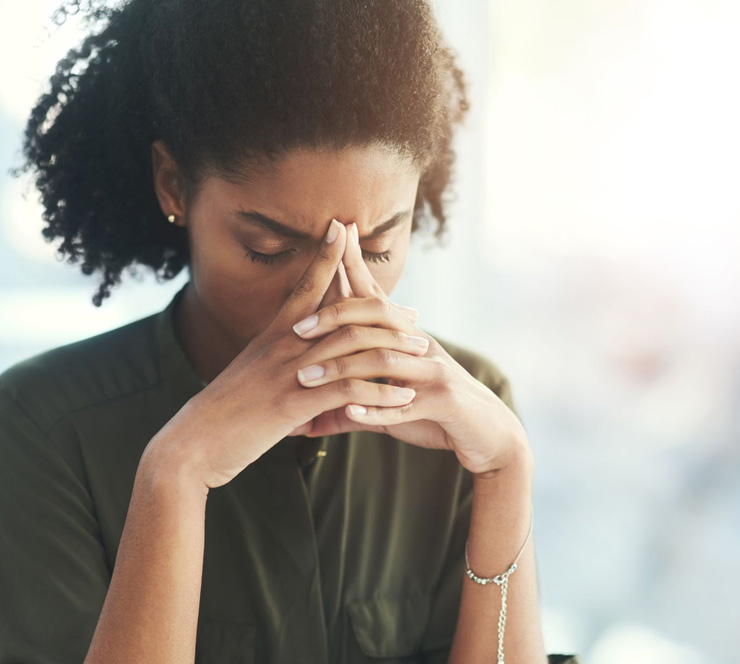
Daisaku Ikeda, a renowned peace activist, says,” health is not simply the absence of illness. Real health lies in the will to overcome every form of adversity and use even the worst of the circumstances as a springboard for new growth and development”. However, health is equated mainly with its physical aspect, and its mental aspect is somehow ignored. In reality, the two, mind and body, are essentially interconnected.
Mental health is not just the absence of mental illness or disease. It is primarily concerned about bringing out the best in people and helping people thrive by nurturing them, identifying their strengths, and helping lead their meaningful lives.
COVID-19 and its Challenges
The covid-19 pandemic has created an uncertain crisis that the world was not prepared for. During such unprecedented times, people are challenged with work, education, physical and mental conditions, family dynamics, social relationships, loss of loved ones, etc. The situation is rather grim.
While things at large or on the outset seem to be out of control, our control is how we as humans respond to such trying times. Martin Seligman, the pioneer of positive psychology, is of the view that several internal circumstances can be under your voluntary control. If you decide to change these circumstances with your efforts, you may get an increased level of happiness.
Herein lies the significance of robust mental health and the dire need to invest in it. Poor mental health, disrupts our day-to-day activities, interactions, work, finances, and community. Moreover, it increases the risk of physical ailments like heart disease, type 2 diabetes, strokes, suicide, etc.
Mental Health Issues
Mental health issues can be linked with extreme disorders of the mind. Yes! They are a part of it, yet they alone do not define it.
The issues that are slowly but surely setting in are stress and anxiety, depression, insomnia, burnout, relationship problems, lack of motivation, loneliness, behavior issues with children, job insecurity, low self-esteem, and self-awareness.
In April 2020, according to a Covid linked online survey(in India), in which 1600 people participated, 2 out of 5 people had symptoms of anxiety and depression. Nearly 70% were stressed and reported cropping up of undesirable behavioral changes. This number is undoubtedly bound to rise if people do not prioritize their mental health.
These issues can affect both men and women equally. However, research suggests that men find it more difficult than women to seek help due to beliefs related to controlling emotions and other such masculine stereotypes.
What can be done to improve mental health?
Some of the practices that can be incorporated into our lifestyle are:
- Meditation
- Yoga
- Regular exercise
- Mindfulness
- Gratitude
- Spiritual practices
What prevents people from seeking help from a trained professional?
Essentially it’s the fear of judgment and stigma attached to mental health treatment that prevents people from seeking help. It’s time to shift that perspective. We know of only one life-our current life, and let’s lead it in ways that are meaningful and free of regrets. If seeking help(and we are our own best judge of that)is necessary, let’s take that first step towards action, doing away with judgment and stigma.
Role of a Holistic Psychologist
A holistic psychologist is always conscious of his clients. They take an integrative approach to healing the mind. They take into account the physical, spiritual, and psychological dimensions of human life. They help their clients to break free from destructive behaviors and enjoy a new and improved state of mental, spiritual, and physical health. They do not consider the client as damaged and in need of repair; they instead focus on helping the client release the spiritual perfection which lies within. No medication is prescribed.
A holistic psychologist helps optimize his client’s mental health by using positive interventions like mindfulness, meditation, breathwork, cognitive restructuring, etc. What more can one ask for?.
Is there a better time to rethink mental health than now when we are plagued with the stresses of modern-day life?
India has long been in a mental health pandemic, which Covid-19 has now exacerbated. The only way forward is sustained conversation regarding mental health. People should accept mental health issues as they are.
Mind by itself oscillates between joy and sorrow, hope and despair, pleasure and pain. Let’s try to cultivate a state of life where predominantly the good prevails. Let’s develop compassion, courage, and wisdom in our own lives through well-tended mental health care and show the same compassion and infuse the same courage and wisdom in those challenging their mental well-being.
